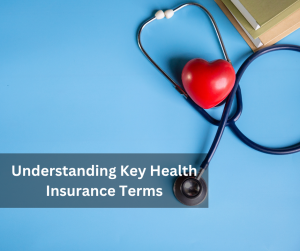
by admin | Aug 4, 2025 | Custom Content, Employee Benefits
 Employers will see several changes to their health and welfare benefits due to comprehensive new tax and spending legislation. This includes notable improvements to Health Savings Accounts (HSAs), Dependent Care Flexible Spending Arrangements (DCFSAs), and employer-provided student loan payments, as well as the introduction of some new fringe benefit choices.
Employers will see several changes to their health and welfare benefits due to comprehensive new tax and spending legislation. This includes notable improvements to Health Savings Accounts (HSAs), Dependent Care Flexible Spending Arrangements (DCFSAs), and employer-provided student loan payments, as well as the introduction of some new fringe benefit choices.
These updates introduce significant changes to employee benefits. These changes are part of a comprehensive legislative package enacted on July 4, 2025 and will require employers and employees to adjust their understanding and utilization of benefit programs. Some of the most notable provisions are:
- Health Savings Accounts (HSAs) can now cover Direct Primary Care (DPC) fees, up to $150/month for individuals and $300/month for families.
- The telehealth exception for high-deductible health plans (HDHPs) is now permanent, ensuring continued access to virtual care. Employees with HDHPs will have first-dollar coverage of most telehealth services, before meeting their HDHP deductible.
- The dependent care FSA limit has increased from $5,000 to $7,500 ($3,750 for married filing separately), a boost for working parents.
- Bronze and catastrophic ACA exchange plans are now HSA-qualified.
- The tax exclusion for employer-sponsored health insurance remains intact, a win for traditional group benefits.
- Permanent exclusion for student loan assistance allows for a tax exclusion of up to $5,250 per year for employer payments of student loans and offers long-term support for employees managing student debt.
- New tax-advantaged accounts for children (a.k.a. “Trump Accounts”) are individual retirement accounts (IRAs) for children under 18 with an annual contribution cap of $5,000. These accounts allow for employers to contribute up to $2,500 per employee. Additionally, children born between January 1, 2025, and December 31, 2028, are eligible to receive a one-time $1,000 government contribution.
These changes are important as they significantly impact the employee benefits landscape. They also enhance access to care, reduce wait times, and provide greater flexibility, cost savings, and options for both employers and employees. By leveraging these updates, organizations can elevate employee well-being while remaining tax-compliant and strategically competitive.

by admin | Jul 15, 2025 | Custom Content, Employee Benefits
 Want to attract and keep top talent? Your benefits package is crucial! Think beyond just health and retirement. Fringe benefits like Dependent Care Assistance Programs (DCAPs) offer real, meaningful support, especially for employees caring for kids or dependent adults.
Want to attract and keep top talent? Your benefits package is crucial! Think beyond just health and retirement. Fringe benefits like Dependent Care Assistance Programs (DCAPs) offer real, meaningful support, especially for employees caring for kids or dependent adults.
What is A DCAP?
A DCAP – also known as a dependent care flexible spending account (DCFSA) (since it functions similarly to a health flexible spending account (FSA)) – helps to ease the financial burden. This program allows employees to set aside pre-tax dollars specifically for eligible dependent care expenses, providing a substantial financial advantage. Through convenient payroll deductions, employees contribute pre-tax funds to this account. These funds can then be used to reimburse them for qualifying expenses such as daycare, babysitting services, or after-school programs.
DCAPs can be standalone benefits or part of a larger “cafeteria plan.” Regardless, they operate under strict IRS rules to ensure proper use of the funds.
What Expenses Qualify for Reimbursement?
To qualify for reimbursement, the expense must be directly related to care that enables the employee (and their spouse, if applicable) to work or look for work. Reimbursement is provided after the care has been rendered.
Eligible Expenses Include:
- Preschool, nursery school, or similar programs (below kindergarten level).
- Before- and after-school care for children.
- Day camps, including specialized camps (e.g., sports, computer).
- Transportation to and from the place of care, if provided by the care provider.
- Employment taxes paid to a caregiver.
- Room and board for a caregiver (in specific cases).
- Application or agency fees related to finding care.
Ineligible Expenses Include:
- Kindergarten tuition or higher education costs.
- Overnight camps.
- Payments made to an employee’s spouse or the child’s other parent (if not their spouse).
Who Qualifies as a Dependent?
Employees can utilize DCAP funds for:
- A dependent child under the age of 13.
- A spouse or dependent who lives with the employee and is physically or mentally unable to care for themselves.
It is important for employees to note that eligibility is calculated on a daily basis. For example, reimbursement cannot be sought for expenses incurred after a dependent’s 13th birthday.
Contribution Limits
Internal Revenue Code Section 129 sets annual contribution limits for DCAPs, ensuring tax compliance:
- Up to $5,000 per year for employees who are single or married filing jointly.
- Up to $2,500 per year for employees who are married filing separately.
These pre-tax contributions are a significant advantage, reducing an employee’s taxable income and thereby increasing their take-home pay. It’s also important for employees to understand that the same expenses cannot be claimed for both a DCAP and the federal dependent care tax credit.
DCAP contributions must be used for eligible care expenses within the coverage period, or they are forfeited. This is often referred to as the “use it or lose it rule.” While a 2.5-month grace period for incurring and submitting claims is permitted, DCAPs do not allow carryovers of unused funds to the next plan year. Additionally, a DCAP is not portable – meaning that if an employee leaves, the funds are forfeited.
Maximizing Benefits for Employees
Offering a DCAP provides meaningful support to employees, whether they are new parents, caring for a loved one with special needs, or simply seeking ways to manage household budgets more effectively. It is a valuable tool that helps team members save money while managing essential care costs.

by admin | Jun 30, 2025 | Custom Content, Employee Benefits
 Selecting the right health insurance plans for your family is a critical process that requires careful attention from start to finish. Navigating health insurance becomes much simpler when you understand its terminology. Making sense of these terms empowers you to better understand your costs, benefits, and even estimate the price of a doctor’s visit.
Selecting the right health insurance plans for your family is a critical process that requires careful attention from start to finish. Navigating health insurance becomes much simpler when you understand its terminology. Making sense of these terms empowers you to better understand your costs, benefits, and even estimate the price of a doctor’s visit.
Premium: Your Insurance Payment: The premium is the regular payment you make to an insurance company to maintain your coverage. When you get insurance through your employer, they will specify how much of the premium you are responsible for, and this amount is typically deducted from your paycheck before your taxes are calculated.
Copayment : A copayment, often called a copay, is a specific amount you pay for a covered healthcare service, and it’s usually due when you receive that service. The amount of the copay can be different for different types of care.
Copay Example: For her son’s pediatrician visit for the flu, Heather had a $15 copay that she paid at the time of the appointment.
Deductible: A deductible is the amount you pay for healthcare services each year before your insurance starts covering costs.
Deductible Example: Ashley has a $1,000 annual deductible. Her first arm surgery costs $800. Since she hasn’t met her deductible yet, she pays the full $800.
Coinsurance: Coinsurance is the percentage of the allowed cost for a covered healthcare service that you’re responsible for paying after you’ve paid your deductible.
Coinsurance Example: Ashley’s next surgery costs $3,200 (the allowed amount). She has already paid $800 of the $1,000 deductible so she is responsible for the first $200 of the second surgery. Her insurance has an 80/20 coinsurance split. This means they pay 80% ($2,400), and Ashley pays 20% ($600).
Out-of-Pocket Maximum (OOPM): The OOPM is the maximum amount you’ll pay for covered healthcare costs in a year, not counting your monthly premium. It acts as a financial safety net against very expensive medical care. After you reach your yearly OOPM, your insurance pays 100% of covered costs for the rest of the year. Be aware that some plans have rules about what expenses count towards your OOPM; for instance, some might not include your deductible.
OOPM Example: Ashley has a $3,000 out-of-pocket maximum and has paid $1,600 so far. Her next surgery costs $8,000. She will pay her 20% coinsurance until her total out-of-pocket reaches $3,000. She has $1,400 left to pay. After that, her insurance covers the remaining $6,600.
Preventive Care: Preventive care focuses on staying healthy and catching illnesses early. It includes medical tests, vaccines, screenings, and medications designed to prevent chronic diseases. The goal is to identify and treat health issues in their most manageable stages. Under the Affordable Care Act (ACA), most health insurance plans must cover a range of preventive services without charging copays, deductibles, or coinsurance.
Preventive Care Example: Lori makes an appointment for her yearly check-up and a mammogram with a doctor in her network. Since these are preventive services covered by the ACA, Lori pays nothing – her health insurance covers the full cost.
Other Benefits Terminology
Pre-existing Condition: This is any health issue (physical or mental, including disabilities) you had before your health plan started. Since 2014, most insurers can’t deny coverage or charge more for pre-existing conditions, unless you have a “grandfathered” plan.
Grandfathered Plan: This is a health plan that existed before the ACA (2010) and hasn’t changed much since. These plans don’t have to follow all of the ACA’s rules.
Summary of Benefits and Coverage (SBC): The SBC is a straightforward document that outlines the costs and coverage of a health plan in an easy-to-compare format.
All those healthcare acronyms and terms might seem overwhelming but taking the time to learn them can put you in control. Understanding the lingo makes it easier to pick a health plan that meets your individual needs and budget!

by admin | Jun 10, 2025 | Custom Content, Employee Benefits
 The word “cancer” carries a weight that extends far beyond its medical implications. Beyond the physical and emotional toll, a cancer diagnosis can bring significant financial strain. While your primary health insurance will cover many treatment costs, there are often substantial out-of-pocket expenses that can quickly add up. This is where cancer insurance comes in. But what exactly is it, and how does it work?
The word “cancer” carries a weight that extends far beyond its medical implications. Beyond the physical and emotional toll, a cancer diagnosis can bring significant financial strain. While your primary health insurance will cover many treatment costs, there are often substantial out-of-pocket expenses that can quickly add up. This is where cancer insurance comes in. But what exactly is it, and how does it work?
What is Cancer Insurance?
Cancer insurance is a type of supplemental health insurance policy designed to provide financial assistance specifically if you are diagnosed with cancer. It’s not a substitute for comprehensive health insurance but rather an additional layer of protection to help manage the costs associated with cancer treatment and recovery. These policies typically pay out a lump-sum benefit or provide ongoing payments upon a cancer diagnosis that meets the policy’s definition.
Think of it as a financial safety net tailored to the unique challenges of battling cancer. The funds received from a cancer insurance policy can be used for a variety of expenses that your primary health insurance might not fully cover, such as:
- Deductibles and Coinsurance: Even with good health insurance, you’ll likely have deductibles and coinsurance amounts to pay.
- Lost Income: If you or your caregiver need to take time off work for treatment and recovery, it can lead to a significant loss of income.
- Travel and Accommodation: Traveling to specialized treatment centers can incur substantial costs for transportation, lodging, and meals
- Experimental Treatments: Some cutting-edge or experimental treatments may not be fully covered by standard health insurance.
- Other Living Expenses: The financial burden of cancer can extend to everyday expenses like groceries, utilities, and transportation.
How Does It Work?
- Purchase a Policy: You buy a cancer insurance plan through an insurer, often as an add-on through your employer or directly as an individual.
- Pay Monthly Premiums: Like other insurance policies, you’ll pay a regular premium to maintain coverage.
- Get Diagnosed: If you’re diagnosed with cancer while your policy is active, you file a claim. Cancer insurance will generally only pay benefits for the first occurrence of cancer and will not provide benefits if you have already been diagnosed before purchasing the insurance.
- Receive Benefits: Depending on your policy, you may receive a lump sum or payments for specific treatments and services.
While no one wants to imagine facing cancer, being prepared can make a significant difference. Cancer insurance helps reduce the financial stress of a diagnosis, allowing you to focus more on recovery and less on expenses. However, it’s essential to review your current health coverage and weigh whether supplemental cancer insurance fits your needs and budget.

by admin | May 28, 2025 | Custom Content
 Your most valuable asset isn’t your house, car or retirement account. It’s the ability to make a living. Long-term disability insurance (LTD) provides financial protection by replacing a portion of your income—typically 50% to 70%—if you become unable to work due to a prolonged illness, injury, or accident. This benefit is paid directly to you and you determine how best to use this income replacement. It serves as a critical safety net for sustaining essential expenses like housing, medical bills, and daily living costs during extended recovery periods.
Your most valuable asset isn’t your house, car or retirement account. It’s the ability to make a living. Long-term disability insurance (LTD) provides financial protection by replacing a portion of your income—typically 50% to 70%—if you become unable to work due to a prolonged illness, injury, or accident. This benefit is paid directly to you and you determine how best to use this income replacement. It serves as a critical safety net for sustaining essential expenses like housing, medical bills, and daily living costs during extended recovery periods.
Benefits consultants agree that although long-term disability coverage lacks the novelty appeal of some other benefits that companies are offering these days (Hello, pet insurance!) but it can prove much more valuable in the long run. After all, according to the Social Security Administration, 1 in 4 people who are 20 years old now will be disabled before they reach age 67.
How It Works
- Enrollment and Premiums: You can often obtain LTD insurance through your employer as part of a group benefits package or purchase an individual policy. You will typically pay a monthly premium to keep the coverage active. Employer-sponsored plans may be more cost-effective (think of it as buying in bulk), but individual policies offer more customization and portability.
- Elimination Period: Before benefits begin, there is a waiting period called the “elimination period.” This period can range from a few months to a year, depending on your policy. Short-term disability insurance may cover this initial period.
- Benefit Payments: Once the elimination period is over and your claim is approved, you will receive monthly benefit payments. The amount is typically a percentage of your pre-disability income, often ranging from 50% to 70%.
- Benefit Duration: The length of time you receive benefits depends on your policy’s terms. Some policies pay benefits for a specific number of years (e.g., 5, 10 years), while others continue until you reach retirement age or recover from your disability.
- Definition of Disability: LTD policies have a definition of disability that you must meet to be eligible for benefits. Many policies have an “own occupation” definition for an initial period (e.g., 24 months), meaning you are considered disabled if you cannot perform the essential duties of your regular job. After this period, the definition may switch to “any occupation,” meaning you must be unable to perform any job that you are reasonably qualified for based on your education, training, and experience.
What Does LTD Insurance Cover?
When most people think of disabilities, they imagine catastrophic workplace accidents resulting in lost limbs. The reality is far less dramatic. Every day people are diagnosed with common illnesses and injuries that prevent you from working, including:
- Physical Injuries: Severe back injuries, joint pain, loss of limb.
- Illnesses: Cancer, heart disease, diabetes, multiple sclerosis.
- Mental Health Conditions: Depression, anxiety, and other mental health disorders (though some policies may have limitations on benefits for these conditions).
- Neurological Disorders: A Stroke, Parkinson’s disease, ALS.
It’s important to review your specific policy to understand what conditions are covered and any exclusions that may apply.
Key Considerations When Choosing LTD Insurance:
- Benefit Amount: Determine how much of your income would need to be replaced to meet your financial obligations.
- Elimination Period: Consider how long you can go without income before benefits begin.
- Benefit Duration: Think about how long you might need income replacement if you become disabled.
- Definition of Disability: Understand the policy’s definition of disability and how it may change over time.
- Portability: If you obtain insurance through your employer, consider what happens if you change jobs. Individual policies are typically portable.
Long-term disability is only designed to replace a portion of your income – it doesn’t cover extra expenses like your medical bills or long-term care costs. Remember: LTD isn’t there to make you rich – it’s there to pay the bills and put food on the table if something happens to you.

by admin | May 6, 2025 | Custom Content, Health & Wellness
 Every year, millions of people experience mental health challenges with limited access to care. According to the World Health Organization, 1 in 8 people globally are affected. Conditions like anxiety and depression significantly reduce productivity, costing the global economy around $1 trillion annually. Despite the rising demand for support, more than two-thirds of those who need mental health care don’t receive it.
Every year, millions of people experience mental health challenges with limited access to care. According to the World Health Organization, 1 in 8 people globally are affected. Conditions like anxiety and depression significantly reduce productivity, costing the global economy around $1 trillion annually. Despite the rising demand for support, more than two-thirds of those who need mental health care don’t receive it.
When left untreated, mental health issues can deeply impact the workplace—reducing productivity, increasing absenteeism, and driving up healthcare costs. Offering meaningful mental health benefits is a proactive step employers can take to support their workforce and reduce these risks.
Raising Awareness
Employers can help employees feel less alone by developing campaigns that raise awareness. Here are a few ways employers can raise awareness, address stigma, and foster a sense of belonging in the workplace:
- Enhance accessibility. Mental health programs should be inclusive and easy to access for employees from all backgrounds. Employers can explore both digital platforms and in-person options to ensure support is available in ways that meet diverse needs.
- Showcase mental health benefits: Ensure employees are aware of mental health benefits by holding meetings, providing resources, and sharing instructions about accessing care through benefit offerings.
- Integrate wellness into workplace culture: Formal strategies that infuse mental well-being into the company culture focus on providing workplace processes and benefits that help reduce stress and promote mental well-being, including flexibility, time off, added breaks, environmental changes, etc.
- Have mental health conversations in the workplace: Normalizing conversations around mental health in meetings, informal discussions, and one-on-one talks can help reduce stigma and bolster employee belonging.
Encouraging Self-Care
Integrating self-care throughout your daily schedule improves both mental and physical health. Yet, self-care is often reserved for hours outside of work. Employers can help employees practice self-care by changing workplace policies and improving work-life balance. For example, creating flexible work schedules can help employees manage personal responsibilities without missing work. Providing mental health days or time off for self-care activities can give employees more balance and improve morale. Developing a company-sponsored wellness program can provide employees with resources and eliminate cost barriers to services that can improve mental and physical wellness.
Providing Support and Resources
Stigma surrounding mental health often leads to limited knowledge about mental health conditions and ways to prioritize mental wellness. Employers can provide employees with resources about the importance of mental health care and offer frequent, transparent information about the company’s mental health benefits and how to use them.

 Employers will see several changes to their health and welfare benefits due to comprehensive new tax and spending legislation. This includes notable improvements to Health Savings Accounts (HSAs), Dependent Care Flexible Spending Arrangements (DCFSAs), and employer-provided student loan payments, as well as the introduction of some new fringe benefit choices.
Employers will see several changes to their health and welfare benefits due to comprehensive new tax and spending legislation. This includes notable improvements to Health Savings Accounts (HSAs), Dependent Care Flexible Spending Arrangements (DCFSAs), and employer-provided student loan payments, as well as the introduction of some new fringe benefit choices.




